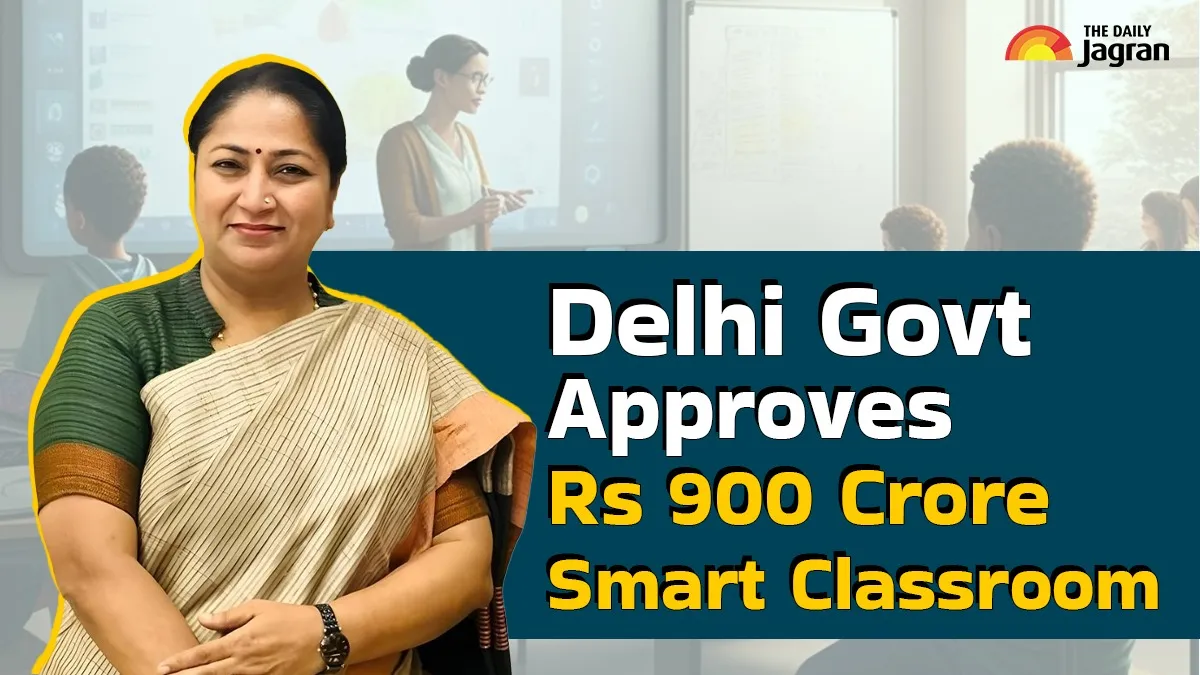- By Sarju Saran Tiwari
- Wed, 09 Jul 2025 01:25 PM (IST)
- Source:JND
Delhi Smart Classrooms: The Delhi Cabinet, under the leadership of Chief Minister Rekha Gupta, has approved a substantial Rs 900 crore package dedicated to revolutionizing government school infrastructure across the capital. This ambitious plan is set to equip more than 21,000 classrooms with state-of-the-art smart boards and essential digital learning tools by the academic year 2029-30. This initiative marks a significant and determined push towards integrating technology into Delhi’s public education system, promising a modern learning environment for thousands of students.
The immediate phase of this transformative project includes the installation of 2,446 smart blackboards in 75 government schools, specifically those operating under the "CM Shri School" scheme. This rollout represents the first major deployment of digital infrastructure under the new BJP-led government in Delhi. The Public Works Department (PWD) will oversee the execution, which also encompasses additional smart classroom construction, comprehensive teacher training in digital tools, and the integration of ICT-based learning, all aligned with the National Education Policy (NEP) 2020.
Education Minister Ashish Sood highlighted the scale of this new endeavor, noting that the previous government had managed to install only 799 smart boards between 2014 and 2024, primarily through Corporate Social Responsibility (CSR) funds. In stark contrast, the current administration has set an ambitious five-year target to convert 21,412 classrooms into fully functional smart classrooms. These crucial upgrades will be strategically prioritized in underserved areas of the city, including Najafgarh, Narela, Seemapuri, Mahavir Enclave, and Kirari, ensuring equitable access.
Official data reveals that Delhi currently boasts over 37,000 government classrooms, but a mere 2 percent had been digitized until this new push. With this substantial ₹900 crore investment, the government aims to bring more than half of all classrooms under the advanced smart learning framework. This initiative is widely regarded as a landmark step towards effectively bridging the existing digital divide in education, promising to offer equitable access to modern resources for students from diverse socio-economic backgrounds.
This strategic policy move also signifies a major shift in Delhi's education priorities under the leadership of Chief Minister Rekha Gupta, who assumed office in February 2025 following the BJP’s decisive victory in the Assembly elections. The phased rollout of these smart classrooms is anticipated to commence within the current academic year, with tenders for the initial batch of schools already having been floated, setting the stage for a digitally empowered learning future.
Bridging the Digital Divide:
This ambitious project directly addresses the long-standing digital divide within Delhi's education system. By equipping over half of government classrooms with smart technology, it ensures that students from low-income backgrounds, who often lack access to digital tools at home, receive equitable opportunities. This move is crucial for preparing them for a technology-driven future and fostering inclusive learning environments across the city.
CM Rekha Gupta's Vision for Education:
Under Chief Minister Rekha Gupta's new leadership, this smart classroom initiative reflects a clear and strong commitment to modernizing public education. It signals a strategic shift towards leveraging technology to enhance learning outcomes and provide students with cutting-edge resources. The phased implementation, starting this academic year, underscores the government's proactive approach to realiing this transformative vision.

